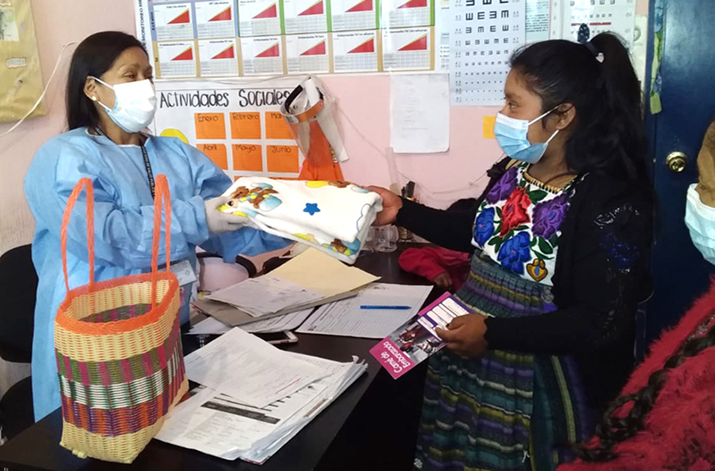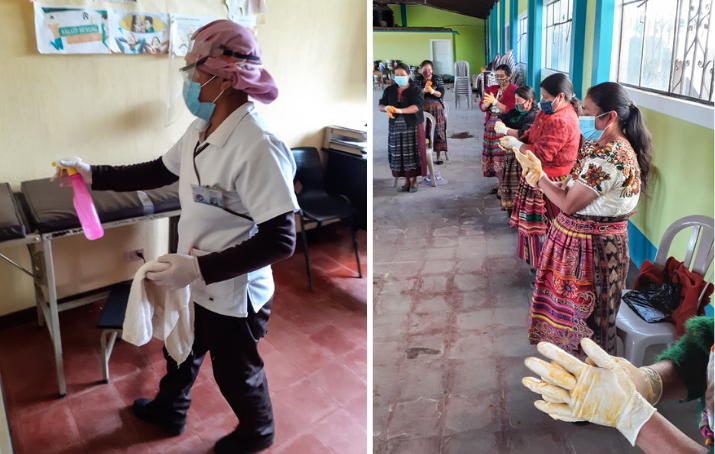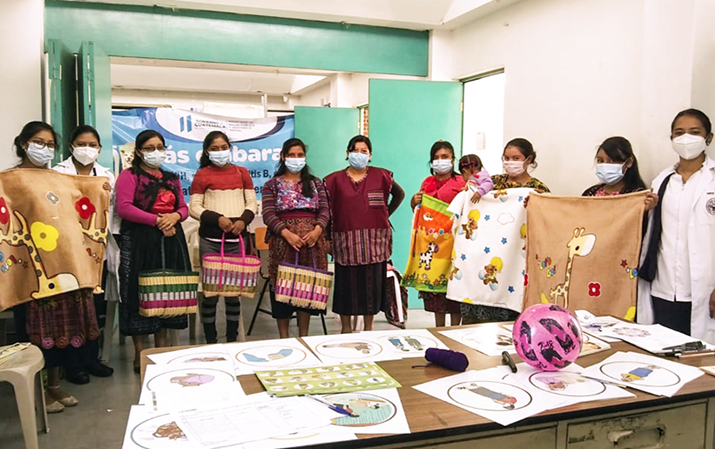Supporting Safer Births in Guatemala During the COVID-19 Pandemic
Supporting Safer Births in Guatemala During the COVID-19 Pandemic

Access to effective antenatal care (ANC) was already a challenge for indigenous women and adolescents in the Western Highlands of Guatemala, even before the COVID-19 pandemic. The Quetzaltenango department in particular has high poverty and fertility rates, and substandard access to health services.
In 2019, MSH began working to strengthen antenatal care (ANC) in Quetzaltenango using a group care model to improve women’s experience of pregnancy and improving birth outcomes. The project, Strengthening Antenatal Care for Indigenous Women in Guatemala, trained nurses and traditional midwives, or comadronas, to facilitate meetings of groups of women in similar stages of pregnancy. They held discussions on self-care, birth preparedness, and the importance of delivery with a skilled birth attendant. Each woman also had a health assessment. This work was made possible by a grant from Margaret A. Cargill Philanthropies.
MSH first tested the model in eastern Uganda in 2016 and adapted that model to western Kenya in 2017. The end goal of the work is to prompt women and adolescents to seek quality ANC care, and if possible to deliver at health facilities that are equipped to handle emergencies.
Helping women adapt to pandemic restrictions

When the COVID-19 pandemic hit in early 2020, MSH and our partners had to find new and innovative ways to support pregnant women. The Guatemalan government instituted weekend lockdowns, curfews, limits on local and interdepartmental transit, and some health facility closures. Women began having an even harder time accessing facility-based care, particularly in rural areas.
At the same time, temporary restrictions on women having a birth companion at health facilities, and fears of contracting COVID-19 at the health center, deepened distrust of the health system among Indigenous communities. MSH and local partners carried out a series of activities to help ensure that women could access quality ANC services, including calling pregnant women to counsel them on their pregnancy and encouraging them to come to the health center for their ANC sessions. The project also contributed to facility improvements to boost protection from COVID-19, including training health staff.
MSH will continue its impactful work in the Guatemalan Highlands with a new project: Supporting Healthy Mothers and Babies. MSH will continue the work in Quetzaltenango and begin work in the San Marcos department, in collaboration with local partners PIES de Occidente and the Reproductive Health Observatory (OSAR). The project will scale up the group ANC model and work to improve quality and cultural responsiveness of facility based services in these two departments.
The program will also use community resources to help identify, reach, support, and monitor women who are unable to access health services during their pregnancies and in the postpartum period including due to COVID-19 restrictions. Community workers and comadronas will counsel women on the importance of seeking early ANC services, and on how to access facility-based essential emergency services if complications arise. This work is also made possible by a grant from Margaret A. Cargill Philanthropies.

Leveraging resources to support COVID-19 response
As COVID-19 infections have been rising steeply in Guatemala, efforts to support accelerated vaccine roll out are even more important. ANC offers critical opportunities to strengthen risk communication for COVID-19, including vaccine safety and availability. The project will also help link access to mobile outreach clinics, currently used to support ANC in remote rural areas, with vaccine information and distribution, and will help ensure that mobile outreach staff are trained in infection prevention and control.